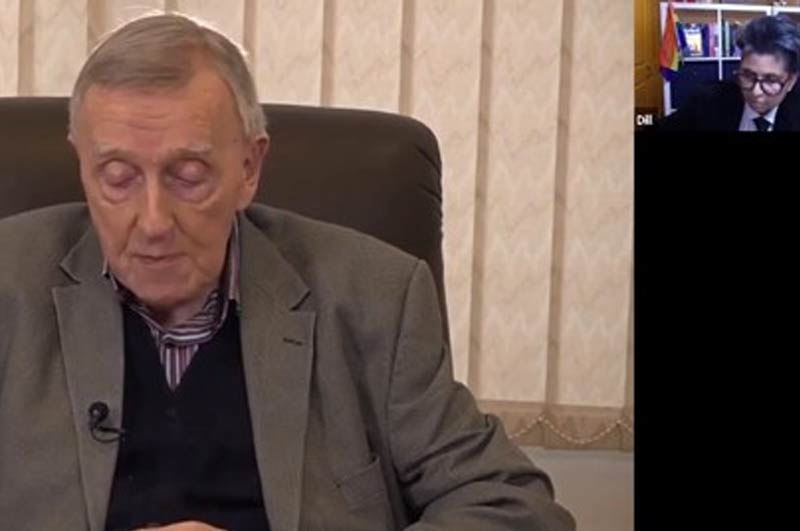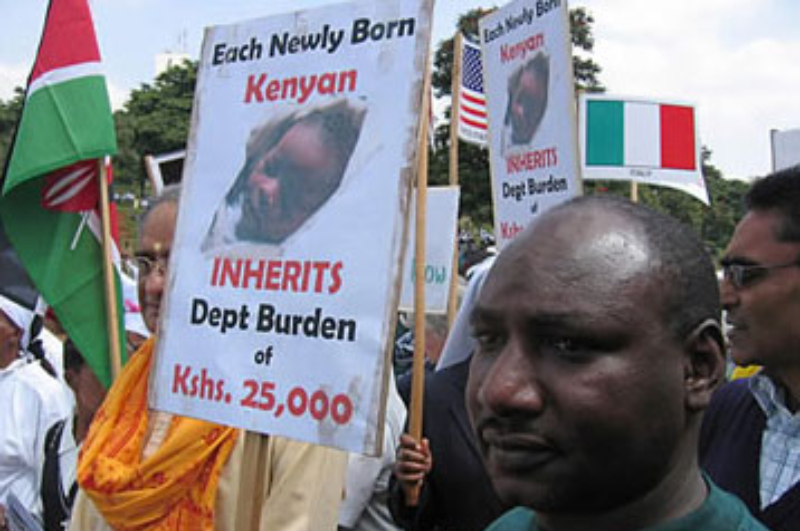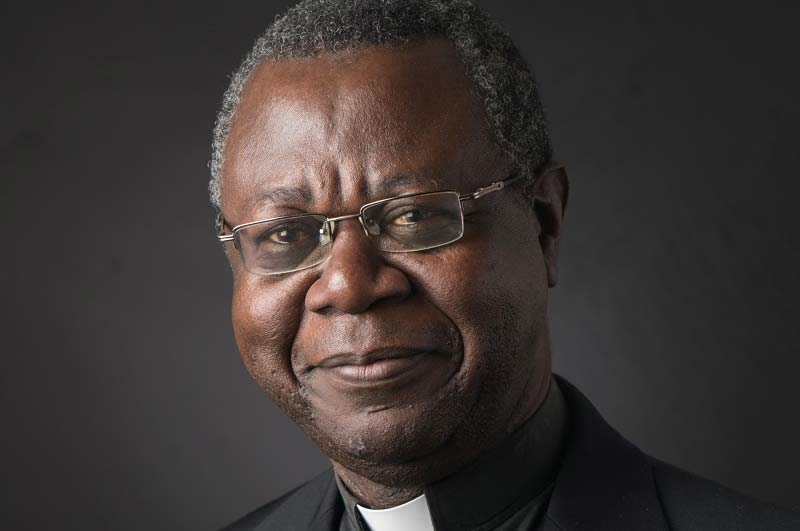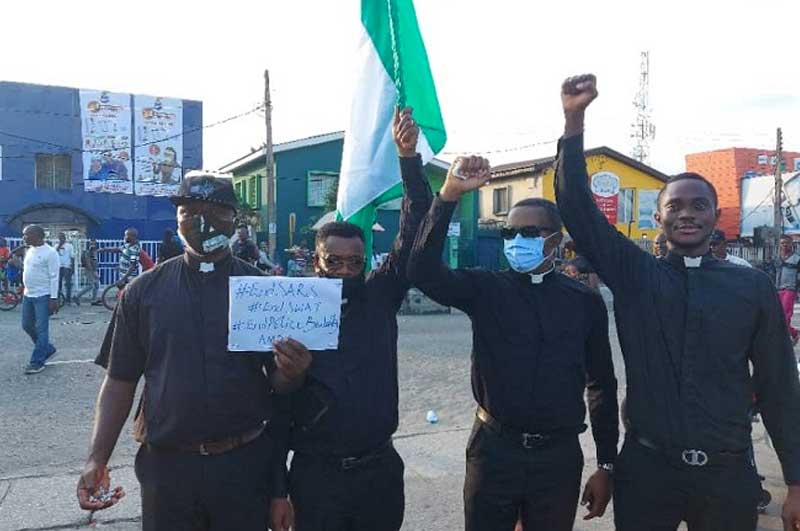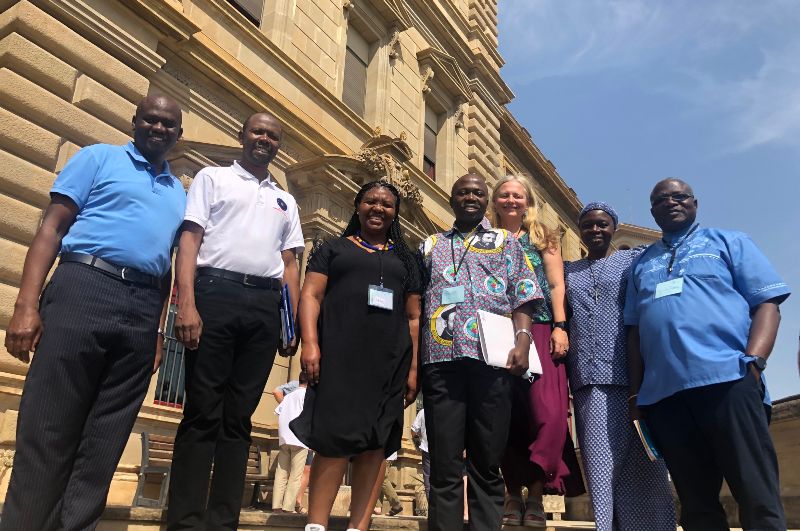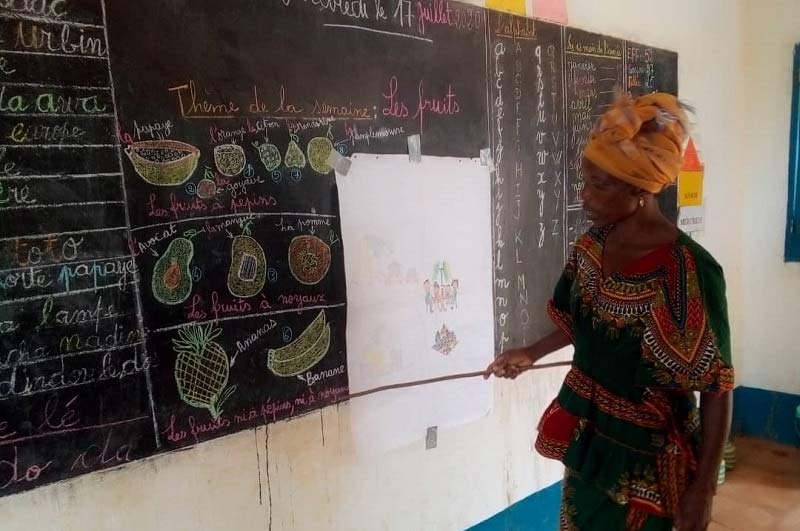


Chaplaincy via WhatsApp
The challenges that faced us within the chaplaincy when UCT (the University of Cape Town) closed were sadly not dissimilar to the challenges that faced our broader society. Although UCT is regarded as a world-class institution the stark inequalities among students remain—most often invisibly. It is possible that a student living in a private residence here in a wealthy part of Cape Town, in a private residence, and yet without anyone knowing struggling for food as expenses go up. When students are here one would not be able to see who comes from impoverished communities but when they returned home to continue studies in lockdown, often in a small dwelling with other people sharing the same space, students became anxious about their studies, their results and the impact that will have on their bursaries.
Lockdown hit us barely one month into the academic year. For many students, it meant leaving behind the new community of faith and budding friendships they formed and returning home to a place that might be struggling to find the means to have a fighting chance against this virus. So although the chaplaincy ceased to operate with the beginning of lockdown and was in effect closed we decided we would somehow keep in contact just to provide support and foster our sense of community, which gives students a sense of belonging and to remind them they are not forgotten.
A survey was undertaken by our neighbouring YMCA chaplaincy team and it revealed that students suffer from screen-fatigue. More than anything else students desired opportunities to interact with each other to share experiences and coping strategies.
We continued our chaplaincy committee meetings. Because some on the committee could not afford the data for ZOOM we had a “WhatsApp meeting” with each one writing their suggestions and responses. This is not ideal as we were seven, spanning three countries, and it took us about half a day! We have since learned that it is better to conduct meetings over a few days, or more informally by sudden spurts of WhatsApp activity when everyone seems online.
We needed to determine how we will minister to our students. Will we use platforms that are available to the poorest or will we diversify and offer more possibilities depending on what people can afford or are able to do? We decided to adopt an "all-for-one, and one-for-all" type of thinking as it brings us all down to the same level and helps us as a community to enter into solidarity with the poorest among us. Presently, we have some who have WiFi and so could afford ZOOM meetings. Others cannot even afford WhatsApp calls and only write messages. The free data UCT provides for students only covers those in South Africa. So, our question was whether we would adapt our ministry to reach people where they are, or whether we would only communicate via email (and UCT’s communications platform) and by WhatsApp messages.
Although it is my desire as a priest to reach as many students in as many ways possible, after consulting with our Kolbe ACTS (the Association of Catholic Tertiary Students) committee, we have decided to use for the most only media that would be available to the greatest number of students. That is why we do not present any ZOOM meetings or live-stream Masses as it would potentially (and in reality does) exclude some students, who do not have the data or the money to allow them to participate in online services or Masses. In fact, one of the Kolbe committee students did not even have a computer or tablet. It is only through the kindness of a neighbour that allows her use of a computer during the day to access classes online. Another student who remained here in a private residence attended all his classes and did his essays on his smartphone. At UCT these students used the computer labs for work but in lockdown, these computers were not available. Sadly there are many stories like these and I know of students who had to discontinue their studies.
In this time our ministry must also make students aware that some of our fellow students (and many other people in the world) are cut-off from the means of a fighting chance and other support systems because of the unjust structures that underpin our world system. This system is of course part of the patterns or structures of sin that we discover in the first week of the Spiritual Exercises. So sharing in solidarity with our poorest students will hopefully be a powerful wakeup call to ponder our world-system and its values and make us question to what degree we buy into the value system of the world.
And so we decided to take our whole chaplaincy to WhatsApp as it were.
What does a WhatsApp ministry look like?
Since WhatsApp is the more data-friendly platform we send formal communications every week via email, VULA (the UCT communications platform), and WhatsApp that has become the de-facto platform of choice.
On a personal level, I am available and have regular conversations with students on WhatsApp or even Skype. These have led to profound discussions as many students are in a process of evaluating their lives and what they ultimately want to live for. In addition, we offer some structured programmes too.
Every weekend we prepare a Sunday Service at Home Guide. These offer a comprehensive guide as to how a household might celebrate that Sunday with the Readings of the Day and some reflections and prayers. In addition, I record a short WhatsApp audio in the form of an informal chat that is not exactly a homily but contains some points for reflection and encouragement based on the Sunday readings.
From time to time we offer written reflections (like the Words on the Cross for Good Friday, reflections inspired by the Our Lady and who she is in our lives for the month of May). In May we prayed the Rosary together (albeit alone) in a communion of spirit but some managed to do it over a shared WhatsApp call. Shortly after lockdown, we prayed a litany of deliverance from the Pandemic as a novena. Students like these devotional prayers like novenas and rosaries and we did another novena in preparation for Pentecost that included daily reflections by Pope Francis. Currently, students are doing an online retreat leading up to Ignatius Day. We use the material provided in the form of short reflections for prayer provided by Magis. All this goes out on WhatsApp.
The students are currently on a holiday and we have started a WhatsApp Group Bible study called: “Diving into the Deep: an online Lectio Divina experience journeying through the Psalms”. We meet up to eight on a shared WhatsApp call for 45 minutes. We read a Psalm together and then go and pray on it alone for 15 minutes. We call each other again after our prayer and share what moved us. We dive deeper then as we question and reflect on the meaning of the Psalm and its application to our lives. Ironically, we hoped to form smaller friendship groups this year as a way to foster small Christian communities and now because of this pandemic, we get the opportunity through these calls to form “virtual support, or faith-sharing groups” that will hopefully bond us so that when we return we will already have structured groups that function as small Christian communities. Br. Denis Sawadogo SJ, a Jesuit scholastic, who studies at UCT and forms part of our community will conduct in a similar format a basic c ourse introducing Ignatian spirituality. He has already sent out short audio on the daily Examen.
We are currently in the process of developing a "virtual wall" on which people may post or share their experiences or inspirational quotes. This is not as intimate as WhatsApp but will provide an opportunity to share that will make students less alone and increase a sense of belonging. Since it is the holiday break the committee had the brainwave to challenge the students to send in some recording or text of a song, poem, or something creative. This will be posted on the VULA (the chaplaincy’s portal at UCT) and will be accessible to provide something like an on-line concert “in your own time”. Of course to kickstart this the chaplain and Br Denis will have to record a song. We hope this will act as a talent show.
In order to deepen our understanding of the Church’s Social Teaching, our superior, Fr Rampe Hlobo SJ, will present short audios of 15 minutes with some people on different themes unpacking different aspects of our social teaching. These will be posted as part of a series of short conversations by different people on our “virtual wall” and will be available as a resource. We hope this will ignite and enable us and our students to become agents of change for a more just world after Covid-19. Fr Hlobo has already presented a short WhatsApp audio looking at some key points of Catholic Social Teaching.
Although I am formally the chaplain at UCT the chaplaincy is very much an apostolate of our community. Living with the Co-ordinator of the Social Apostolate in our Region helped me to remain focussed on the needs and plight of the poorest. In this truly Ignatian and Jesuit way, we help each other towards salvation. And without the poor, this is not possible. So my thanks go to my community.
Related Articles
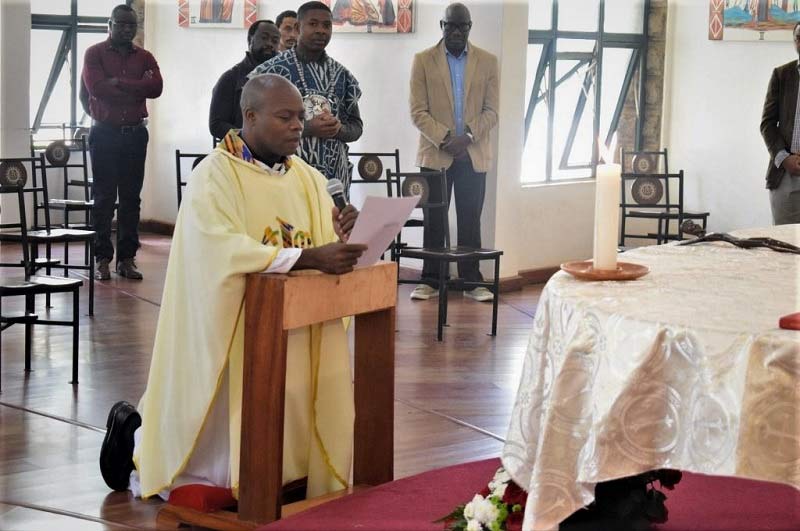
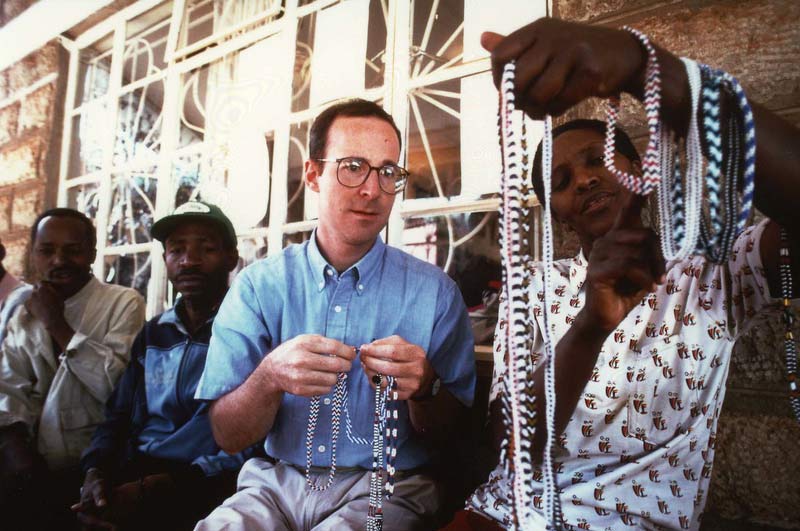
Select Payment Method
Pay by bank transfer
If you wish to make a donation by direct bank transfer please contact Fr Paul Hamill SJ treasurer@jesuits.africa. Fr Paul will get in touch with you about the best method of transfer for you and share account details with you. Donations can be one-off gifts or of any frequency; for example, you might wish to become a regular monthly donor of small amounts; that sort of reliable income can allow for very welcome forward planning in the development of the Society’s works in Africa and Madagascar.
Often it is easier to send a donation to an office within your own country and Fr Paul can advise on how that might be done. In some countries this kind of giving can also be recognised for tax relief and the necessary receipts will be issued.


